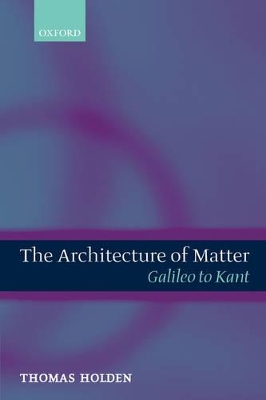Thomas Holden presents a fascinating study of theories of matter in the seventeenth and eighteenth centuries. These theories were plagued by a complex of interrelated problems concerning matter's divisibility, composition, and internal architecture. Is any material body infinitely divisible? Must we posit atoms or elemental minima from which bodies are ultimately composed? Are the parts of material bodies themselves material concreta? Or are they merely
potentialities or possible existents?
Questions such as these - and the press of subtler questions hidden in their amibiguities - deeply unsettled philosophers of the early modern period. They seemed to expose serious paradoxes in the new world view pioneered by Galileo, Descartes, and Newton. The new science's account of a fundamentally geometrical Creation, mathematicizable and intelligible to the human inquirer, seemed to be under threat. This was a great scandal, and the philosophers of the period accordingly made various
attempts to disarm the paradoxes. All the great figures address the issue: most famously Leibniz and Kant, but also Galileo, Hobbes, Newton, Hume, and Reid, in addition to a crowd of lesser figures.
Thomas Holden offers a brilliant synthesis of these discussions and presents his own overarching interpretation of the controversy, locating the underlying problem in the tension between the early moderns' account of material parts on the one hand and the programme of the geometrization of nature on the other.
- ISBN10 0199263264
- ISBN13 9780199263264
- Publish Date 8 July 2004
- Publish Status Active
- Publish Country GB
- Publisher Oxford University Press
- Imprint Clarendon Press
- Format Hardcover
- Pages 320
- Language English
